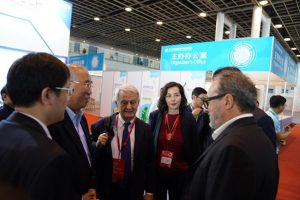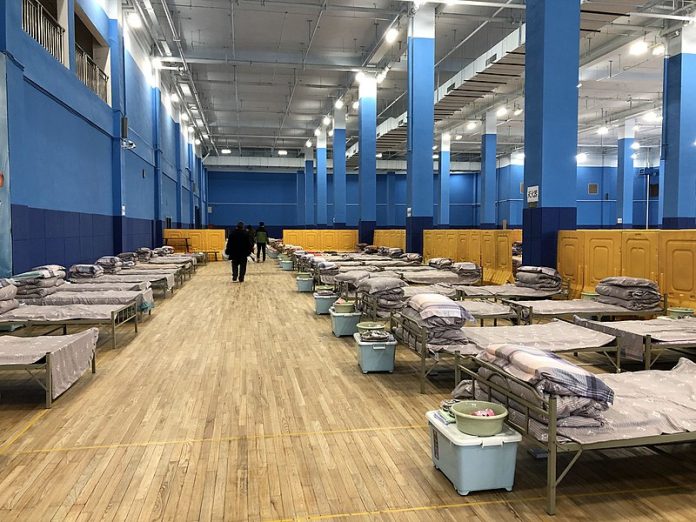The launch of a joint programme by the Harvard Medical School (HMS) and the Guangzhou Institute for Respiratory Health on the Covid-19 pandemic suggests that medicine is still able to transcend geopolitical differences. That is how globalisation at its best works, advancing human knowledge, consolidating global experience, and bolstering global capacity to manage threats against our species. We will need more of this capacity in the future to come.
The programme is funded by China’s Evergrande Group to the tune of $115 million and coordinated by the HMS director George Q. Daley and the Head of the Chinese Task Force on Covid-19 and General Manager of the China State Key Laboratory of Respiratory Diseases, Zhong Nanshan. The Center for Communicable Disease Dynamics at Harvard’s Chan School of Public Health is led by a world-renowned epidemiologist, Marc Lipsitch, who is also part of the team.
Lipsitch and Zhong have highlighted the strategic role of their joint endeavour, which aspires to manage the emergency with appropriate measures, informed by the experience of the Wuhan crisis and, at the same time, to organise an effective global system of coordinated prevention and monitoring systems for future epidemic events. And Harvard’s President Alan M. Garber has made clear that this partnership will counter this pandemic with global, scientifically-informed and data-driven measures This Harvard-launched initiative does provide food for thought in a European context.On November 2019, the Italian Health Minister Roberto Speranza and his Chinese counterpart signed a comprehensive plan for health cooperation between Italy and China for the period 2019-2021. This plan frames an internationally policy coordination instrument for “Prevention, Diagnosis, and Treatment of infectious diseases in public health emergencies. ” Perhaps, instead of suspending direct flights to China, as it happened on the 30th of January, Italy would have been better off implementing this bilateral agreement that is accompanied by a remarkably similar action plan to the one signed 20 days later at Harvard. This course of action would have been much wiser, especially if we take into account that – as in all epidemics – timely and accurate exchange of information and “lessons learned” from experience on the ground becomes precious and invaluable to crisis management teams worldwide.

Photo: China’s former Environment Minister and Chief Climate Negotiator for 20 years, Xie Zhenhua, currently the President of the Institute for Climate Change and Sustainable Development, Tsinghua University; Veteran Climate Negotiator and former Environment Minister, Corrado Clini; Strategy and Innovation Advisor Arvea Marieni, (non-visible assistant), Italian Businessman, “Circular Economy Development Forum” organised by China’s Association of Circular Economy (CACE) and Trade Fair on Circular Economy, Nanjing 20-22 October, 2019.
China’s help with sending doctors and medical supplies to Italy lays the foundations of a public health collaborative framework between the two countries. Nevertheless, it would also be a positive development if Italian medical luminaries and outstanding Italian hospitals and research centres joined this joint Sino-American effort.
Over the last few weeks, both medical personnel and hospitals in Italy have consistently and repeatedly proven their value “on the battlefield”, and their experience should inform the Sino-American initiative at Harvard, creating the core of a genuinely global transnational response. As traumatic as they were, Italian crisis-management experiences must inform global governance models, scoping at the very least a future European crisis-management capacity.
The Harvard programme signals to anti-globalisation fans – who have been inspired by the Wuhan epidemic to suggest that we need to quarantine China – that it is a matter of common sense to let go of their delusions. The way forward is more integrated approaches, not going it alone. In this regard, let us share our views on the matter: Covid-19 is a global challenge that requires global responses. That is possible only through reinforced international cooperation. As both Zhong Nashan and Marc Lipsitch have pointed out, it will be necessary to work to develop new data-analysis models and identify the origin of the pandemic; simultaneously, it is essential to work together to identify optimal ways of dealing with the global pandemic. The Harvard programme is a concrete step in this direction.The prediction, or rather the hope, of the “anti-globalists” that coronavirus would have accelerated the transfer from China of many European and US companies with the contextual “economic decoupling” does not seem so relevant today if we consider that China seems to be leaving the acute phase of the coronavirus crisis which is instead hitting the European and US economies. As the Director of the International Monetary Fund director Kristalina Georgieva reminded us at the G20 economy ministers’ meeting “Covid-19 is a harsh reminder of our interconnections and the need to work together.”The facts suggest that the path of cooperation on a global level must be resumed; our energies much be dedicated to building bridges rather than emphasising differences.
Corrado Clini: Veteran climate negotiator, former Minister for Environment, Member of the Advisory Committee GEIDCO, Visiting Professor at the SOE School of Environment, Tsinghua University
Arvea Marieni: Strategy and Innovation Advisor and Manager specialising in EU China environmental cooperation. Expert Evaluator for the EU commission.“International Corporate Affairs Advisor”, ‘BrainscapitalBrainscapital (www.brainscapital.it)

